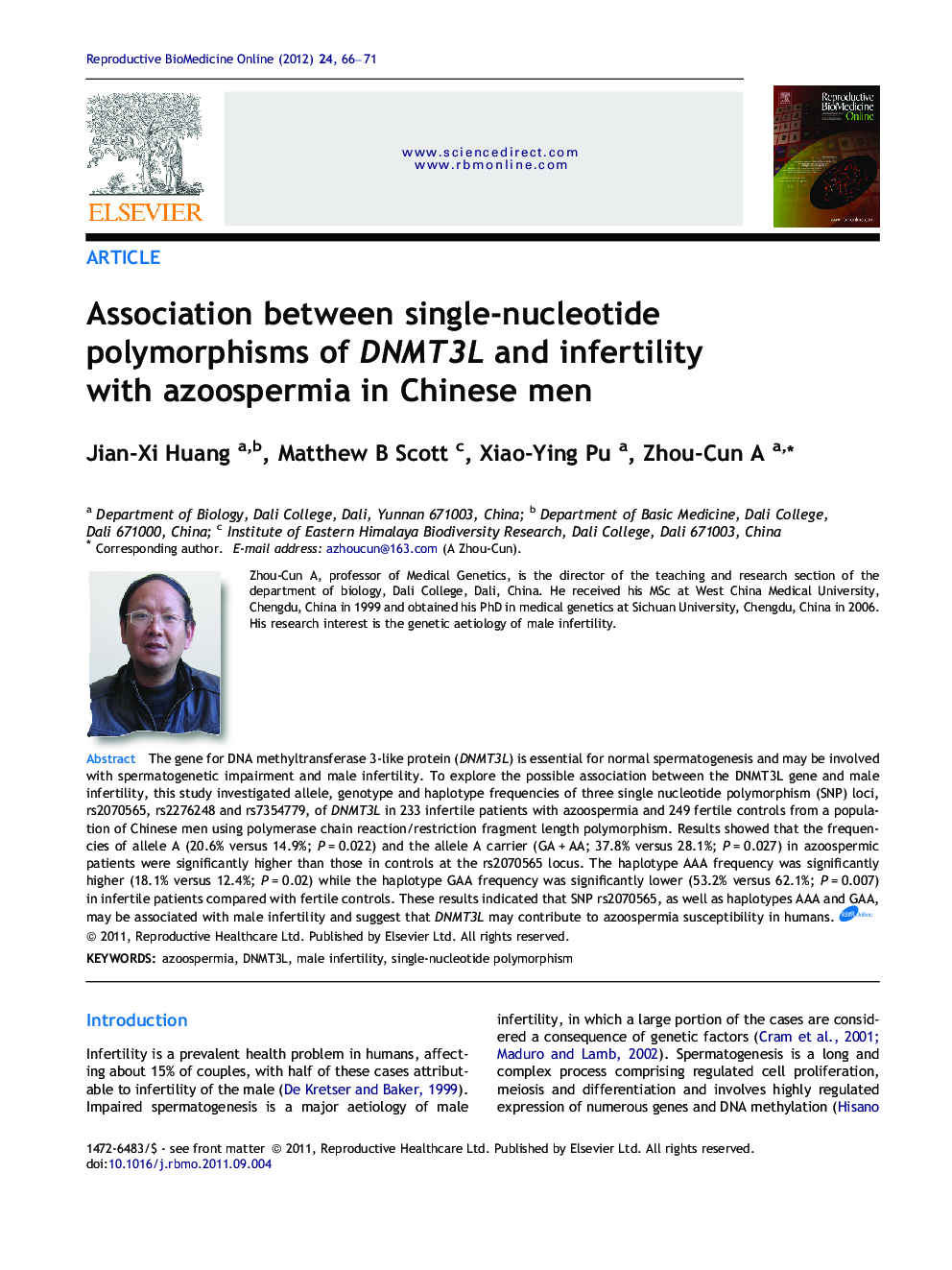| Article ID | Journal | Published Year | Pages | File Type |
|---|---|---|---|---|
| 3970624 | Reproductive BioMedicine Online | 2012 | 6 Pages |
The gene for DNA methyltransferase 3-like protein (DNMT3L) is essential for normal spermatogenesis and may be involved with spermatogenetic impairment and male infertility. To explore the possible association between the DNMT3L gene and male infertility, this study investigated allele, genotype and haplotype frequencies of three single nucleotide polymorphism (SNP) loci, rs2070565, rs2276248 and rs7354779, of DNMT3L in 233 infertile patients with azoospermia and 249 fertile controls from a population of Chinese men using polymerase chain reaction/restriction fragment length polymorphism. Results showed that the frequencies of allele A (20.6% versus 14.9%; P = 0.022) and the allele A carrier (GA + AA; 37.8% versus 28.1%; P = 0.027) in azoospermic patients were significantly higher than those in controls at the rs2070565 locus. The haplotype AAA frequency was significantly higher (18.1% versus 12.4%; P = 0.02) while the haplotype GAA frequency was significantly lower (53.2% versus 62.1%; P = 0.007) in infertile patients compared with fertile controls. These results indicated that SNP rs2070565, as well as haplotypes AAA and GAA, may be associated with male infertility and suggest that DNMT3L may contribute to azoospermia susceptibility in humans.The gene for DNA methyltransferase 3-like protein (DNMT3L) plays an important role in DNA methylation of some genes during spermatogenesis, essential for spermatozoa maturation in male. Defects of DNMT3L have been shown to lead to spermatogenic impairment and subsequent male infertility in mice. So, it is reasonable to postulate that DNMT3L may also involved with impaired spermatogenesis and infertility in humans. To test this, we investigated the allele, genotype and haplotype frequencies of three single nucleotide polymorphism (SNP) loci, rs2070565, rs2276248 and rs7354779, of DNMT3L in a population of Chinese men that included 249 fertile control individuals and 233 individuals with azoospermia. At the rs2070565 locus, the frequencies of allele A and the allele A carrier (GA + AA) in patients were significantly higher than those in controls, implying that the presence of rs2070565 allele A may increase the risk of azoospermia in males. Also, significant differences were detected in the distribution of haplotypes of the three SNP between patients and controls. Haplotype AAA was significantly higher while haplotype GAA was significantly lower in infertile individuals in comparison to control individuals, indicating that haplotype AAA might be a risk factor for azoospermia, while haplotype GAA may provide have some protection against azoospermia. These results suggest that DNMT3L may be contribute to susceptibility of azoospermia in male humans.
